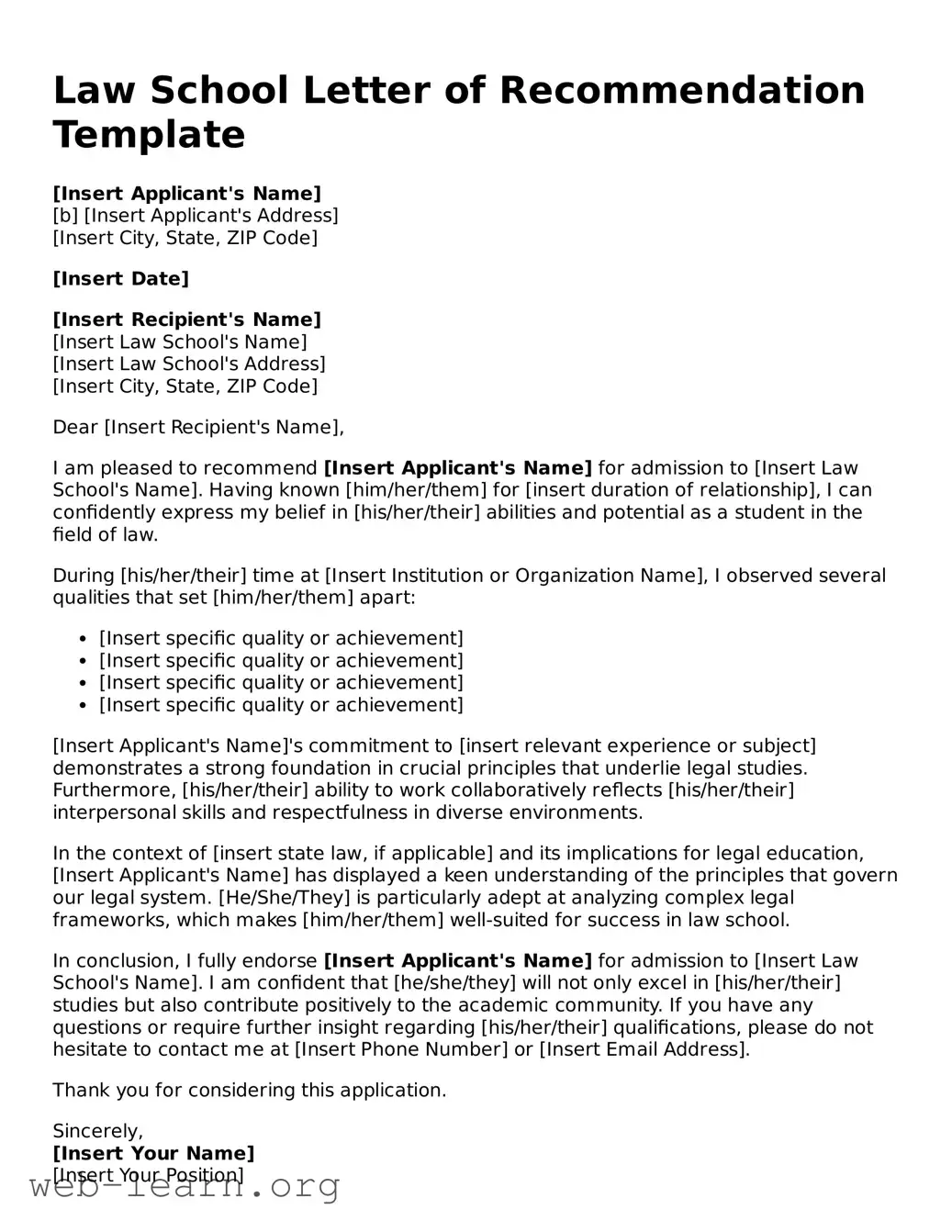Law School Letter of Recommendation Template
[Insert Applicant's Name]
[b] [Insert Applicant's Address]
[Insert City, State, ZIP Code]
[Insert Date]
[Insert Recipient's Name]
[Insert Law School's Name]
[Insert Law School's Address]
[Insert City, State, ZIP Code]
Dear [Insert Recipient's Name],
I am pleased to recommend [Insert Applicant's Name] for admission to [Insert Law School's Name]. Having known [him/her/them] for [insert duration of relationship], I can confidently express my belief in [his/her/their] abilities and potential as a student in the field of law.
During [his/her/their] time at [Insert Institution or Organization Name], I observed several qualities that set [him/her/them] apart:
- [Insert specific quality or achievement]
- [Insert specific quality or achievement]
- [Insert specific quality or achievement]
- [Insert specific quality or achievement]
[Insert Applicant's Name]'s commitment to [insert relevant experience or subject] demonstrates a strong foundation in crucial principles that underlie legal studies. Furthermore, [his/her/their] ability to work collaboratively reflects [his/her/their] interpersonal skills and respectfulness in diverse environments.
In the context of [insert state law, if applicable] and its implications for legal education, [Insert Applicant's Name] has displayed a keen understanding of the principles that govern our legal system. [He/She/They] is particularly adept at analyzing complex legal frameworks, which makes [him/her/them] well-suited for success in law school.
In conclusion, I fully endorse [Insert Applicant's Name] for admission to [Insert Law School's Name]. I am confident that [he/she/they] will not only excel in [his/her/their] studies but also contribute positively to the academic community. If you have any questions or require further insight regarding [his/her/their] qualifications, please do not hesitate to contact me at [Insert Phone Number] or [Insert Email Address].
Thank you for considering this application.
Sincerely,
[Insert Your Name]
[Insert Your Position]
[Insert Your Institution or Organization]
[Insert Address]
[Insert City, State, ZIP Code]
